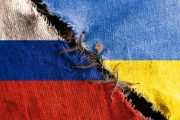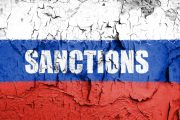Just days after rushing to defend freedom of speech in the wake of the Charlie Hebdo attacks, Socialist French authorities launched a wave of mass arrests, detaining dozens of people so far, including children, over their alleged “illegal” speech. Among the supposed thought crimes that are subject to the ongoing crackdown are “apology for terrorism,” “glorification” of terror, racism, “hate speech,” anti-Semitism, and more. The irony of cracking down on speech following a terrorist attack supposedly aimed at silencing free speech did not go unnoticed, however.
In the frantic Socialist rush to silence controversial or offensive speech, national authorities at the Justice Ministry ordered law enforcement and prosecutors across the country to come down hard on all thought criminals. Socialist Prime Minister Manuel Valls reiterated the French government’s position on freedom of speech, too, saying that “racism, anti-Semitism and the glorification of terrorism [apologie du terrorisme] are crimes.” One of the French statutes being used in the latest crackdown, the recently approved “Anti-Terror Act,” prohibits expressing sympathy with terrorists or condoning their activities.
Meanwhile, French courts are reportedly expediting speech cases, having already meted out numerous prison sentences for various forms of thought crimes. One man in the city of Valencienne in northern France was reportedly even sentenced to four years in prison this week. He was found guilty of saying that “there should be more Kouachis;” a reference to the alleged terrorists who struck in Paris last week with AK-47s and reportedly killed 17 before being shot dead by authorities. The convicted “offender” also told police officers that he hoped they would be the next victims.
Others caught up in the anti-free speech dragnet included a prominent and apparently popular Jew-hating comedian known as Dieudonné M’bala M’bala, who has been repeatedly convicted in France for speech that was deemed to be racist and anti-Semitic. “Tonight, as far as I’m concerned, I feel like Charlie Coulibaly,” Dieudonné said in a social-media post after participating in the “solidarity” march. The remark combined the “Je suis Charlie” (“I am Charlie”) public response to the terror attacks with the last name of alleged Paris terrorist Amedy Coulibaly. The comedian was arrested and is being charged with “glorifying terrorism,” French authorities were quoted as saying.
The comedian quickly “clarified” his remarks in a second post, saying his first comment was supposed “to make people laugh, and to laugh at death, since death makes fun of us all, as Charlie very well knows.” The Socialist prime minister, though, was not persuaded, insisting that there was some sort of difference between Charlie Hebdo’s disgusting notions of “humor” and the “jokes” made by Dieudonné. “There is a fundamental difference between the freedom to be impertinent, and anti-Semitism, racism, glorification of terrorist acts and Holocaust denial, all of which are offenses, all of which are crimes, that justice should punish with the most severity,” the prime minister argued.
Also arrested in recent days were four minors, including a 15-year-old girl arrested for calling the alleged Charlie Hebdo terrorists her “brothers” and saying she was proud of them, according to news reports. Separately, a 16-year-old was accused of having screamed jihadist threats against “whites.” Another young man caught up in the crackdown, who claimed he was drunk at the time, reportedly shouted “long live the Kalashnikov” at a group of police officers following the attack.
In all, at least 54 people have been caught up in the expanding attack on thought crimes over the past week. “We can’t back down an inch,” public prosecutor Patrice Michel was quoted as telling French news agency AFP about the mass arrests over “criminal” speech, touting the widely criticized Anti-Terror Act passed late last year as a valuable tool in the battle against “criminal” opinions and beliefs. “It’s the first time we’ve applied the law of 14 of November 2014 in our fight against terrorism.” When it was passed two months ago, the “terror” speech law was widely criticized, even being dubbed the “French Patriot Act” in reference to the American “Patriot Act” purporting to grant the federal government broad terror-war powers to violate individual rights.
For critics, though, arresting thought criminals days after the massive demonstrations across France in favor of free speech that followed last week’s terrorist attacks in Paris is more than slightly hypocritical. “We can definitely talk about hypocrisy here,” Adrienne Charmet, campaign coordinator for La Quadrature du Net, a Paris-based Internet rights group that fought against the “Anti-Terror Act,” told the Washington Post. “In the past days, we have seen a lot of people condemned for putting out words, no matter how condemnable those words, and receiving sentences that seem quite exaggerated…. Either way, this crackdown on freedom of speech is a betrayal of last Sunday’s march.”
Advocates of free expression and freedom of speech also took a dim view toward the recent wave of arrests. Aaron Rhodes, president of the Forum for Religious Freedom-Europe and a founder of the Freedom Rights Project, for example, wrote that the Charlie Hebdo murders were aimed at suppressing the exercise of one of the most fundamental rights — the right to free speech. “The best way to repudiate this violence against freedom is not only to proclaim, but to demonstrate respect for human rights,” he argued. “Yet despite rhetoric about the value of free speech in the aftermath of the killings, French authorities have, in recent years, retreated from protecting the freedom of expression — mostly in an attempt to avoid offending the Islamic community and ideological multiculturalists.”
Rhodes added that the struggle against Islamic terrorism is in fact a struggle against totalitarianism. “No society can successfully withstand such a challenge without itself respecting intellectual diversity and freedom,” he said. “If France would recommit itself to fundamental freedoms, and rid itself of secularized blasphemy laws and discriminatory laws like the burqa ban, authorities would be on firmer ground to insist on the sanctity of individual freedom and to uphold the rule of law.” The struggle against totalitarianism would also be clearer, Rhodes concluded, “if the state were not also in the business of stifling free speech and enforcing cultural conformity.”
Meanwhile, attorney Michael Wacquez, whose client was recently imprisoned for “glorification of terrorism” after expressing support for the alleged Paris attackers, noted that the Socialist French government now finds itself in a dilemma. “There are 40,000 tweets out there expressing support for the terrorists,” he was quoted as saying in media reports, potentially underestimating the true count. “What are we going to do with all these people? Are the French prisons ready to take in 40,000 people, because they made a bad joke on Twitter?”
Of course, the criminalization of speech surrounding all of the supposed thought crimes defined in French law — any speech that “insults, defames or incites hatred, discrimination or violence on the basis of religion, race, ethnicity, nationality, disability, sex or sexual orientation” — conforms precisely to anti-free expression and “hate speech” schemes demanded by the United Nations and the European Union. In fact, as The New American reported just days ago, the UN, the EU, and the Socialist French government represent a far greater threat to free speech than terrorists ever could. And that threat is growing, ironically enough, under the guise of pseudo-“human rights.”
George Washington University professor Jonathan Turley, writing in the Washington Post, pointed out the profound irony and absurdity of it all. “While France long ago got rid of its blasphemy laws, there is precious little difference for speakers and authors in prosecutions for defamation or hate speech,” he explained. “There may also be little difference perceived by extremists, like those in Paris, who mete out their own justice for speech the government defines as a crime. To them, this is only a matter of degree in responding to what the government has called unlawful provocations.”
Under the First Amendment to the U.S. Constitution, the federal government is specifically prohibited from infringing on the God-given right to free speech of Americans — and that has worked well for more than two centuries. Even in France and Europe, though, where free speech is limited by increasingly draconian EU and UN-backed restrictions, the solution to abhorrent speech is not a thought-crimes regime to punish free expression and terrorize those with hateful views into silence. Instead, the solution is more speech in a free-market of ideas.
In fact, such anti-freedom schemes, in addition to representing an affront to liberty and the unalienable rights of man, are also dangerous for a variety of reasons. Driving haters underground and silencing them using the coercive power of government will not end their hate, and can only backfire in a major way in the end. If the French are serious about standing for “free speech” after the Charlie Hebdo attack, an end to the EU- and UN-backed war on freedom of speech would be a good place to start.
Photo of French police officers: AP Images
Alex Newman, a foreign correspondent for The New American, is normally based in Europe. Follow him on Twitter @ALEXNEWMAN_JOU. He can be reached at
Related articles:
On Free Speech, UN and French Rulers Side With Jihadists
Amid Terror in Paris, Gun Control Leaves French Defenseless
UN Seeks to Criminalize Free Speech, Citing “Human Rights”
Citing EU, Italy Orders Journalists to Promote Homosexual Agenda
Socialists Want Gov’t Action Against Catholic Student Group for Opposing Pro-homosexual Bishop
The EU: Regionalization Trumps Sovereignty
Religious Freedom Under Assault in U.K., Christians Say
EU in Final Phase of Destroying Democracy, Czech President Warns
Hate Speech: U.K. Political Leader Arrested for Quoting Winston Churchill
United Nations Exploits Pseudo-“Human Rights” to Attack U.S.
In U.K., Freedom of Speech and Press Hang in the Balance
Germany’s Silencing of Islam Critics
Patriotic Movements on the Rise: The Anti-Islamist Worm Turns as Europe Burns




